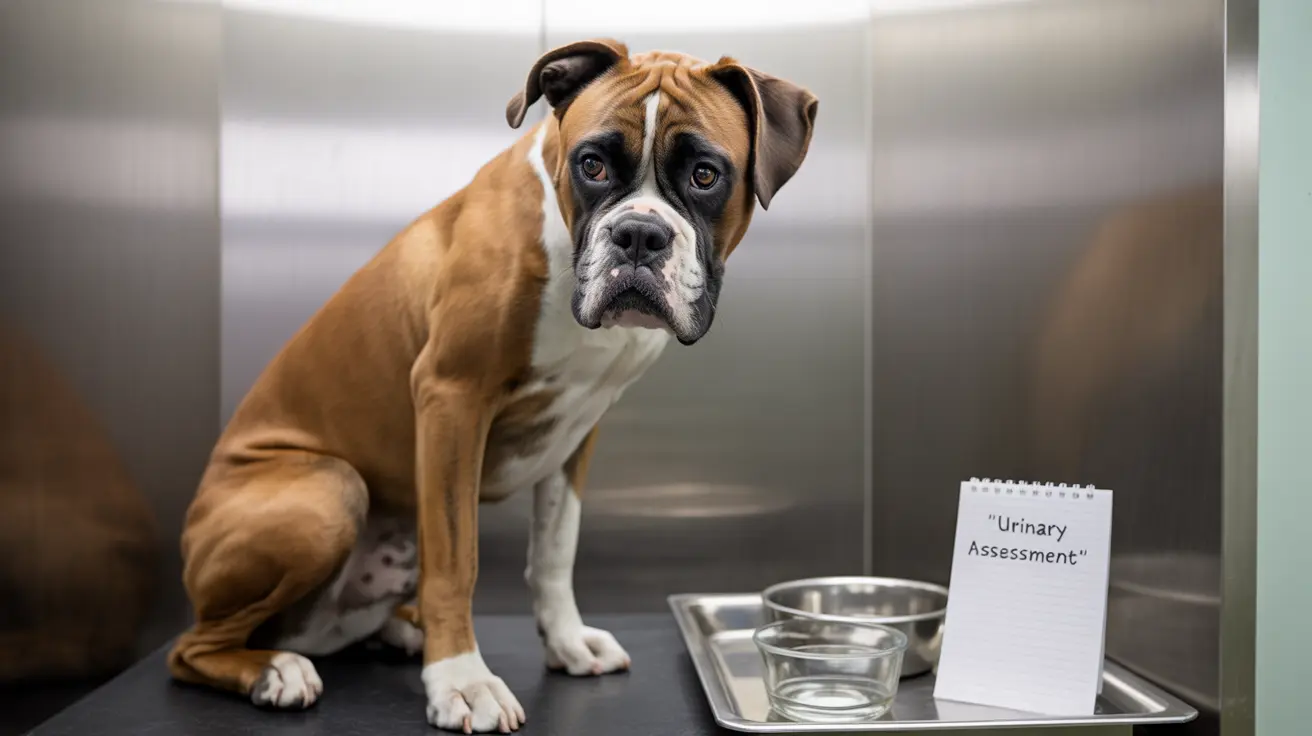If you've noticed your dog not peeing despite multiple attempts, it's essential to understand that this could signal anything from a minor inconvenience to a life-threatening emergency. This comprehensive guide will help you identify the causes, recognize warning signs, and know when to seek immediate veterinary care for your pet.
Understanding why your dog isn't urinating properly is crucial because some conditions, particularly complete urinary blockages, can become fatal within 24-48 hours if left untreated. Let's explore the various reasons behind this concerning symptom and what steps you should take to protect your dog's health.
Common Causes of Urinary Problems in Dogs
Several medical conditions can cause a dog to have difficulty urinating or stop urinating altogether:
Urinary Tract Infections (UTIs)
UTIs are common in dogs and can cause painful urination, leading to reluctance or inability to urinate. These infections typically cause frequent urination attempts with little output and may be accompanied by blood in the urine.
Bladder Stones and Urinary Obstruction
Mineral deposits can form stones that partially or completely block the urinary tract. Male dogs are particularly susceptible due to their narrower urethras. These obstructions require immediate medical attention as they can quickly become life-threatening.
Prostate Problems
Male dogs may experience difficulty urinating due to enlarged prostates or prostate disease, which can compress the urethra and restrict urine flow.
Warning Signs That Require Immediate Attention
Watch for these critical symptoms that indicate your dog needs emergency veterinary care:
- Straining to urinate with no output
- Crying or showing signs of pain while attempting to urinate
- Enlarged or tender abdomen
- Lethargy and loss of appetite
- Vomiting or signs of distress
Diagnosis and Treatment Options
Your veterinarian will likely perform several diagnostic tests to determine the underlying cause:
- Physical examination and bladder palpation
- Urinalysis and blood tests
- Ultrasound or X-rays to check for stones or tumors
- Urine culture to identify specific bacterial infections
Treatment approaches vary based on the diagnosis but may include:
- Catheterization for immediate relief of blockages
- Antibiotics for bacterial infections
- Surgery for stone removal or tumor treatment
- Dietary changes to prevent future stones
- Pain medication and anti-inflammatory drugs
Prevention Strategies
To help prevent urinary problems in your dog:
- Ensure constant access to fresh, clean water
- Maintain regular bathroom breaks throughout the day
- Feed an appropriate diet that promotes urinary health
- Schedule regular veterinary check-ups
- Monitor your dog's urination habits for changes
Frequently Asked Questions
Why is my dog not peeing even though they are trying?
Your dog may not be able to urinate due to a blockage, infection, or inflammation in the urinary tract. This could be caused by bladder stones, UTIs, prostate problems, or other medical conditions that require immediate veterinary attention.
What are the emergency signs if my dog can't urinate?
Emergency signs include complete inability to urinate, straining without producing urine, crying in pain, distended abdomen, lethargy, vomiting, and loss of appetite. These symptoms require immediate emergency veterinary care.
How can urinary tract infections cause my dog to stop peeing?
UTIs cause inflammation and swelling in the urinary tract, making urination painful and difficult. The infection can also lead to frequent attempts to urinate with little output and may cause blood in the urine.
When should I take my dog to the vet for difficulty urinating?
Take your dog to the vet immediately if they haven't urinated for 12 hours or longer, show signs of pain while attempting to urinate, or produce very little or no urine despite multiple attempts. Any difficulty urinating should be evaluated by a veterinarian.
What treatments are available if my dog has a urinary blockage or infection?
Treatment options include catheterization to relieve blockages, antibiotics for infections, surgery for stone removal, dietary modifications, and medications for pain and inflammation. The specific treatment plan will depend on the underlying cause of the urinary problem.






